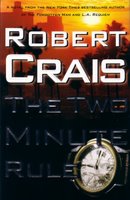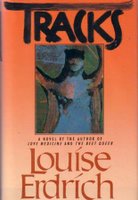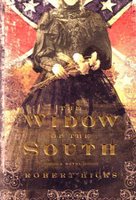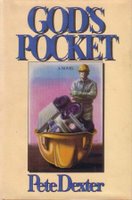Washington, DC—E.L. Doctorow’s novel
The March (Random House) has been selected as the winner of the 2006 PEN/Faulkner Award for Fiction. The announcement was made today by the directors of the PEN/Faulkner Foundation, Patricia Griffith and Robert Stone, Co-Chairmen.
The judges—George Garrett, Ana Menéndez, and Melissa Pritchard—considered more than 359 novels and short story collections by an American author published in the U.S. during the 2005 calendar year from over 90 publishing houses, including small and academic presses. There is no fee for a publisher to submit a book.
Founded in 1980, the PEN/Faulkner Award is the largest peer-juried prize for fiction in the United States. As winner, Doctorow receives $15,000. Each of the four finalists—Karen Fisher for
A Sudden Country (Random House); William Henry Lewis for
I Got Somebody in Staunton (Amistad/Harper Collins); James Salter for
Last Night (Knopf); and Bruce Wagner for
The Chrysanthemum Palace (Simon & Schuster) —receives $5,000.
All five authors will be honored during the 26th annual PEN/Faulkner Award ceremony on Saturday, May 6, at 7 p.m.at the Folger Shakespeare Library, located at 201 East Capitol Street, S.E., Washington, DC. Tickets are $100, and include the award ceremony followed by dinner and dancing. They can be purchased by phoning the Folger Box Office at (202) 544-7077 or online at
www.folger.edu.
About the Winner
Praised for its elegant prose, visionary historical sweep and remarkable characterization, the honored book, E.L. Doctorow’s
The March, begins after the burning of Atlanta and recounts General William Tecumseh Sherman’s march of sixty thousand Union soldiers, in 1864-65, through Georgia and the Carolinas. Doctorow recounts devastations done to the Deep South—a 60-mile-wide trail of transformed lives, landscapes, and history—as the march drives forward, accumulating freed blacks and dislocated whites. Long admired for his masterfully drawn characters, Doctorow portrays General Sherman alongside a cast of dozens of memorable men and women, black and white, caught up in what The New Yorker called “a revolution in motion.”
Winner of the 1990 PEN/Faulkner Award for
Billy Bathgate, Edgar Laurence Doctorow was named after Edgar Allan Poe and credits his family’s love of music and literature to his own artistic beginnings. His other novels include
City of God, Welcome to Hard Times, The Book of Daniel, Ragtime, Loon Lake, Lives of the Poets, World’s Fair, and
The Waterworks. In addition to the PEN/Faulkner Award, Doctorow has also been honored with the National Book Award, two National Book Critics Circle Awards, the Edith Wharton Citation for Fiction, the William Dean Howells Medal of the American Academy of Arts and Letters, and the presidentially conferred National Humanities Medal. Doctorow lives in New York and teaches at New York University.
About the FinalistsHailed as a “great novel of the American West” by Publishers Weekly, Karen Fisher’s debut novel,
A Sudden Country, is based on a journal written by the author’s ancestor Emma Ruth Ross Slavin, who was 11 when her family joined the 1847 Oregon migration. Exploring the intersection of two characters—James MacLaren, who has lost his children to small pox and his Nez Perce wife to another man; and Lucy Mitchell, a remarried widow and mother—the novel follows their deeply affecting encounter, as MacLaren agrees to Guide the Mitchell family from the Iowa banks of the Missouri to the Columbia River in Oregon. Fisher lives with her husband and their three children on an island in the Puget Sound.
I Got Somebody in Staunton is a collection of 10 dazzling stories set variously in Bedford-Stuyvesant; Denver; and Staunton, Virginia, all deeply concerned with the pride and pain of African-American heritage. In William Henry Lewis’s title story, a black college professor, haunted by his dying uncle Izell's memories of lynchings and the ways of the old South, flirts with danger by giving a ride to a flirtatious young white woman. A winner of The 2006 Black Caucus of the American Library Association (BCALA) Literary Awards for this collection, which was also named one of the “25 best books of 2005” by Kirkus Review, Lewis is also the author of
In The Arms of Our Elders, an earlier collection.
James Salter won The PEN/Faulkner Award in 1989 for his collection
Dusk and Other Stories. Admired as one of the most compelling voices in contemporary fiction, Salter’s stunning Last Night is a collection of ten provocative stories that explore situations of love, disappointment, desire, and deception, rendered in luminous prose. Salter, who lives in Colorado and on Long Island, is also the author of the novels
Solo Faces, Light Years, A Sport and a Pastime, The Arm of Flesh (revised as
Cassada), and
The Hunters; as well as the memoirs
Gods of Tin and
Burning the Days.
The Chrysanthemum Palace, the newest biting satire by Los Angeles novelist Bruce Wagner, introduces three self-absorbed friends—all descendents of Hollywood stardom, Bertie Krohn, only child of Perry Krohn, creator of TV’s longest running space opera, recounts the last months in his relationship with Thad Michelet, a 50-something author, actor, and son of a revered author; and Clea Freemantle, daughter of a legendary movie star. Admired as “a millennial heir to Nathaniel West” by the New York Times, Wagner is also the author of
Force Majeure; and the Cellular Trilogy:
I’m Losing You; I’ll Let You Go, which was nominated for the PEN USA fiction award; and
Still Holding.
About all five of these remarkable books, judge Melissa Pritchard says, “Whether writing of the civil war, the American West, Hollywood, or the subtle, plaguing wounds of eros, ignorance, fear, and desire, each of this year’s authors gives us stories quintessentially American in their mythical scope and critical to our current need to stand on more compassionate ground.”
About PEN/FaulknerThe PEN/Faulkner Foundation is committed to building audiences for exceptional literature and bringing writers together with their readers. This mission is accomplished through readings at the Folger by distinguished writers who have won the respect of readers and writers alike; the PEN/Faulkner Award, the largest peer-juried award for fiction in the United States; the PEN/Malamud Award, honoring excellence in the short story; and the Writers in Schools program, which brings nationally and internationally-acclaimed authors to public high school classrooms in Washington, Atlanta, Chicago, Detroit, and Kansas City.
###
Press release issued on February 21, 2006.
 Here's a book I acquired over the weekend: Five Science Fiction Novels. Edited by Martin Greenberg, it was published by Gnome Press, New York, in 1952. It contains the following stories:
Here's a book I acquired over the weekend: Five Science Fiction Novels. Edited by Martin Greenberg, it was published by Gnome Press, New York, in 1952. It contains the following stories:









